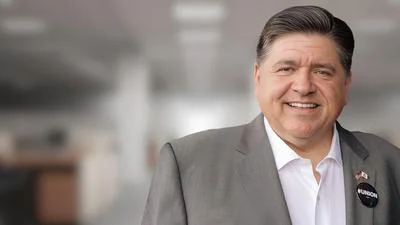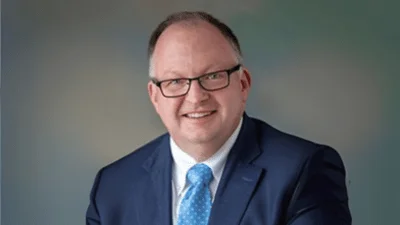Scott Reeder
Scott Reeder
As demonstrators in Havana marched through the streets this month waving U.S. flags, George Ryan sat in his Kankakee home, watched the reports on television and remembered another controversy regarding the Stars and Stripes and Cuba.
In 1999, George Ryan became the first U.S. governor to visit that communist nation.
“The Cubans wanted to play the national anthem and display the U.S. flag when we got off the plane. But it didn’t happen because our State Department contacted the Cubans and demanded that they not do it,” he said during a telephone interview this week.
The U.S. Government has had an embargo against Cuba for about 60 years. It was established in response to the Cuban government seizing property owned by U.S. businesses. And for most of the last six decades the United States has not had formal diplomatic relations with Cuba.
President Barack Obama reestablished diplomatic relations in 2015. But most of the last 60 years, the U.S. has gone through ritualized exercises to show their displeasure with the communist regime such as not allowing the U.S. flag to be flown or the national anthem to be played to welcome visiting dignitaries.
Ryan, who served as Illinois governor from 1999 to 2003, instigated the trip to Cuba despite opposition from the State Department. As part of the negotiations between the state and federal government the official reason for the trip was transformed from a trade mission to a humanitarian outreach.
Today, Ryan, who is 87, has plenty of interest in the democracy demonstrations taking place in Cuba -- but not much optimism.
“I’m afraid they are just going to lock a whole bunch of people up in jail and really crack down on the demonstrators. I’d like to see change happen in Cuba but as long as those who were associated with the Castros (Fidel and his brother Raul) are still in charge, I don’t think it will happen.”
Ryan has been a harsh critic of Fidel Castro and his successors. But Ryan has also demanded that the U.S. trade embargo with the island nation come to an end.
“I'm convinced that the people of Illinois can be of tremendous help to the people of Cuba," he said in 1999. "I believe our strengths in agriculture and education and medical research, as well as our state's strong humanitarian record, will be able to ease some of the burden that's felt daily by the families in Cuba.”
During his visit Ryan toured hospitals, laboratories and farms.
“So much of what we saw was completely fake,” he said. “We went into a classroom with a microscope on every desk. Our Cuban hosts would have us believe this was state-of-the-art. But the microscopes were quite old and were covered with plastic. When we went to the farm, the barns were still dripping with whitewash.”
Ryan, a Republican, said in recent weeks the sight of ordinary Cubans waving American flags and demanding political freedom was inspiring.
“I’m proud seeing our flag flying in the streets of Havana,” he said. Shortly after his 1999 visit to Cuba, Ryan called for making Cuba the 51st U.S. state.
A legacy of the 1999 humanitarian outreach was that cultural and athletic exchanges were established between Illinois and Cuba.
Then-state-Sen. Dan Rutherford led the first exchange when he brought a group of Illinois junior high and high school softball and baseball players to Cuba in 2001. Since then, he has established a travel business that takes Americans on tours of Cuba.
“Up until the pandemic began, I was traveling to Cuba about every six weeks. I have many friends in Cuba – waiters and waitress, drivers – who I’m in regular contact with. I don’t think most Cubans want radical political change, they want economic reforms. The reasons these demonstrations are taking place is because there has been a shortage of food, medicine and energy,” the Pontiac Republican said.
Rutherford views the recent demonstrations differently than the former governor.
“I think it is all fake,” he said. “The former person in the White House talked a lot about ‘fake news’ and I think different factions in the United States are playing up different things for their own agenda. The Cubans I talk to are more interested in economic issues rather than radical political change. The pandemic shut down the tourism industry from Europe and elsewhere in Cuba and because of that there is not enough to eat.”
Although the trade embargo allows for Cuba to buy food and medicine from the United States, Rutherford contends it is the reason Cubans are going hungry.
“Since American tourists aren’t allowed in Cuba and Cubans living in the United States can’t send money back to their relatives and because the U.S. won’t buy Cuban goods, Cuba lacks the hard currency to buy food and medicine from overseas.”
Rutherford said an odd dichotomy is that Cuba has a well-educated, literate population. And it has the best physicians in Latin America. And, yet, basic items such as aspirin can’t be found in the nation’s pharmacies.
“I think if economic reforms come to Cuba, political reforms will follow,” Rutherford said. “It’s time for the trade embargo to come to an end – it’s only hurting ordinary Cubans.”
– Scott Reeder is a veteran statehouse journalist. He works as a freelance reporter in the Springfield area. Scottreeder1965@gmail.com






 Alerts Sign-up
Alerts Sign-up